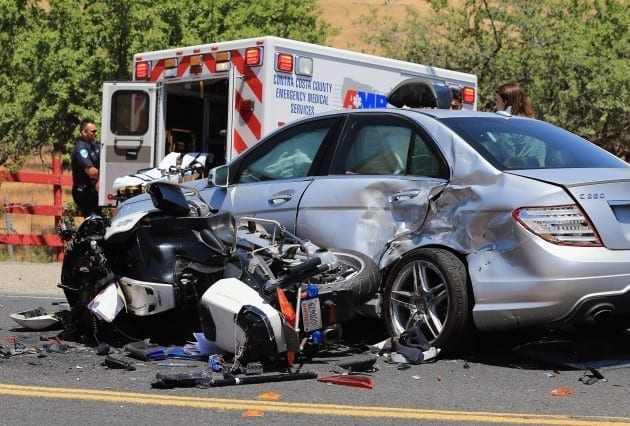Accidents are unpredictable. No one anticipates being involved in an accident or sustaining a personal injury. They can happen to anyone at any given time – even when least expected. Unfortunately, thousands of people this year will be involved in accidents that result in personal injury, especially caused by negligent behavior. Year after year, accidents and injuries constitute one of the biggest threats to public health and safety.
In addition to its association with physical pain and injury, accidents are equally burdensome financial endeavors. Medical visits, treatment programs, medication, and physical therapy are just some examples of ways victims are financially responsible in the aftermath of an accident. When an accident results in an injury, financial relief should be sought and there are legal avenues by which victims can pursue compensation. The following article outlines what to do and what not to do if you have sustained a personal injury.
Do: Document your injury
A detailed account of an accident is easier to document than to remember. There is a substantial amount of paperwork in the wake of an accident that relies on a thorough account of the events leading up to, during and after. Between the police and medical reports, victims need to have a wholesome understanding of what happened, those involved, and injuries sustained. Any information related to the accident or injury should be documented and filed, as it will serve as an important reference for medical, law enforcement, and legal specialists in administrative processes post-accident. Accurate and in-depth documentation will increase the likelihood of a victim’s success in receiving compensation from those at fault.
- The details of the injury should be well recorded
First-hand accounts of events that led to an accident and/or injury can be made via photo, video, or voice recordings. If the police or emergency services are called to the scene, they often are required to fully document the surroundings, damage or injuries incurred, even collecting eye-witness reports from those involved as well as anyone who witnessed the accident.
- The effects of the injury should be documented and saved, including medical records and any evidence of changes.

Doctor Looking at an X-Ray; image courtesy of rawpixel.com via Unsplash, https://unsplash.com
If an injury is sustained in an accident, it is important for the victim to immediately seek medical attention. The victim or a loved one should remain vigilant of the progression of the injuries over time, taking pictures and chronologically documenting its evolution all the way through the healing process. In addition to photos, medical reports or insurance claims are valuable resources for any victim that engages in a legal process related to the injury. Any bills, receipts, or financial costs incurred relating to the accident should be saved and photocopied, which can be presented for reimbursement.
- The importance of both.
Evidence that effectively shows fault or responsibility will be fundamental to support a claim against those liable. The details of the injury over time as well as any medical, law enforcement, or insurance reports are required in the court of law to pursue damages related to the accident.
Do Not: Help arm the defense
Personal injury lawsuits, while valid, are sometimes difficult to defend if there is clear negligence involved. However, each word and action taken after the accident can and will be used by the defense to help or support their case. It is important to remember not to discuss the case with anyone else involved or publicize sensitive information related to an accident or injury. Victims are recommended to consult with a personal injury attorney before speaking, writing, or publicizing details about their case.
- Giving an adversarial insurance company any kind of written or recorded statement can take away from your own case.
Generally, insurance adjusters will contact the victim or those injured in an accident to find out more information or to get their account of what happened. While most people are honest and transparent, any information provided to insurance adjusters can sometimes be misinterpreted or taken out of context. Later, these statements can be used to delegitimize a victim’s claim for financial compensation. Insurance adjusters often represent the best interest of their company and clients, so a best practice is to hire a personal injury lawyer to take over and mediate communications between those involved, those responsible, and any corresponding legal teams or insurance agents.
- Posting on social media while the case is pending can also harm the case.
Photos, videos, text, or comments made on social media platforms can and likely will be used against those involved in an accident. Similar to all ongoing legal cases, it is best not to publicly discuss details of an accident, injury, or subjectivities related to an ongoing case until its conclusion. This is meant to control the spread of misinformation, limit exposure to those involved, and ensure that any relevant information is appropriately used and documented legally.
Do: See your doctor and follow treatment orders
As aforementioned, victims who sustain an injury should seek emergency medical services as soon as possible. Injuries can complicate over time and any duration of time before consulting a doctor or medical specialist can be the difference between life and death.
- It’s imperative to do what your doctor says and follow their orders.
Doctors and emergency medical service providers are highly trained experts. The manner in which they work is often based on the best interest of their patients. Therefore, victims with injuries should take appropriate medical advice and any recommendations regarding treatments. This also includes meticulously following up on the progression of injuries sustained.
- It is best to not allow a gap of time in your medical treatment.
Seeing a doctor or medical specialist as early and often as possible prevents one of the biggest excuses for an insurance company not to cooperate or pay for injuries that occur in an accident. One of the most common reasons for insurance companies to not pay for a victim’s medical expenses is a considerable lapse in time between the accident and receiving medical attention.
Do Not: Accept a settlement offer without speaking to a lawyer
As imagined, an accident is chaotic and those involved can be distraught with medical, legal, and administrative procedures and obligations. While victims are usually overwhelmed in the immediate aftermath of the accident, attorneys or insurance agencies representing those liable can be quick to step in and make a preliminary offer to settle the case outside of court. While the option of settling matters once and for all at an early stage can be appealing, accepting a compensation package without seeking legal consultation may not be in the victim’s best interest. Offering a settlement too early can even be considered a move to protect those at fault.
- Being offered a settlement does not mean that the adversarial insurance company feels bad and wants to help you. Nor does it mean that the medical provider’s medical matters on your injury claim have been properly resolved.
Because injuries are unpredictable and can very likely complicate over time, settlements offered immediately after an accident do not fully encompass the gravity of the situation. Treatments vary significantly and can be lengthy processes. There is no way to know how a victim will be affected in the medium to long term after sustaining an injury. Additionally, settlements offered early are compensatory, meaning they do not include general or punitive damages such as lost wages, pain, and suffering that punish the defendant for their reckless or negligent behavior.
- Rather, you should seek a professional opinion about whether your injury is truly worth the amount they’re offering you.
Professional opinions include insights from medical and legal specialists who are familiar with other injuries and accidents of a similar nature. It is a common practice to consider (at least) a two-year window for full recovery when considering a settlement amount. This is to ensure that the package corresponds to alleviate and adhere to the full burden of the victim.
Conclusion
Overall, the most important action after sustaining an injury in an accident is to find and consult an experienced injury lawyer to assess your case. Specialized attorneys in personal injury can help rectify injustice and help provide victims with the appropriate resources needed to fully recover from an accident. Remember that time is of the essence, so seeking immediate legal counsel early on can be helpful, as personal injury attorneys can mitigate the situation and overhaul communications between victims and entities such as law enforcement, medical service providers, insurance companies, and those involved or responsible for the accident. The best practice is to seek legal counsel immediately to not prolong financial hardship, as proper representation by an attorney can help right the wrong- as well as ensure a clear path to recovery.


Join the conversation!